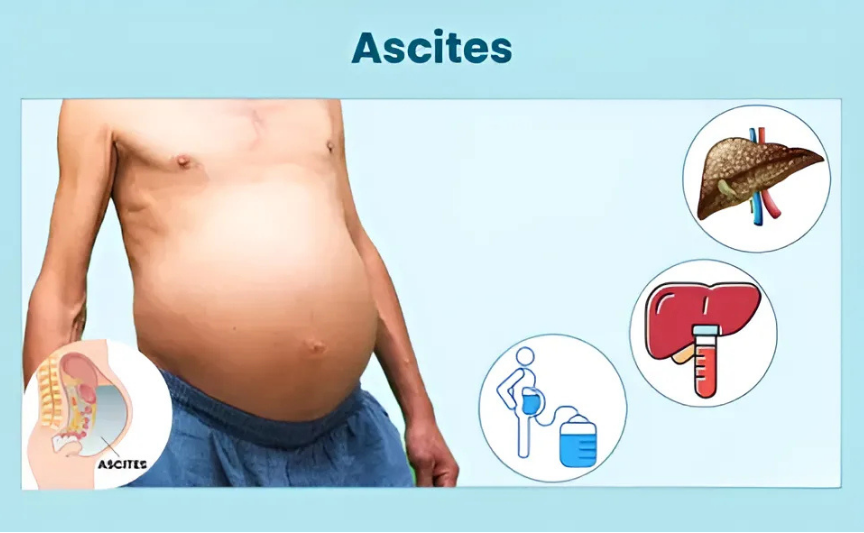Ascites
Ascites: Causes, Symptoms & Treatment
What is Ascites?
Ascites is the abnormal buildup of fluid in the abdomen, commonly due to liver disease such as cirrhosis. It can cause discomfort, swelling, and difficulty breathing.
Causes of Ascites
Common causes include:
✔ Liver failure (cirrhosis, MASH, hepatitis)
✔ Tuberculosis
✔ Peritoneal malignancy (cancer spread in the abdomen)
✔ Heart failure
✔ Kidney diseases (nephrotic syndrome)
✔ Autoimmune conditions (Systemic Lupus Erythematosus - SLE)
Symptoms of Ascites
✔ Swollen abdomen with rapid weight gain
✔ Shortness of breath and difficulty sitting/moving
✔ Loss of appetite, bloating, and abdominal pain
✔ Leg swelling (pedal edema)
✔ Confusion, fatigue, and weakness
✔ GI bleeding (vomiting blood or blood in stools)
Diagnosis of Ascites
Doctors confirm ascites through ultrasonography and conduct further tests like:
✔ CT scan & Peritoneal biopsy (to identify cancer or infection)
✔ Ascitic fluid analysis (to detect infections like tuberculosis and malignancy)
Treatment of Ascites
Treatment depends on the underlying cause:
✔ For Liver Disease: Salt restriction & diuretics (water pills) to remove excess fluid. Advanced cases may require liver transplant.
✔ For Tubercular Ascites: Anti-TB medications (ATT)
✔ For Cancer-related Ascites: Chemotherapy
✔ Spontaneous Bacterial Peritonitis (SBP): IV antibiotics & albumin followed by oral antibiotics
For severe cases, additional treatments include:
✔ Paracentesis (fluid drainage)
✔ TIPS (Transjugular Intrahepatic Portosystemic Shunt) to improve blood flow
✔ Liver transplant in end-stage cases
Prevention & Lifestyle Changes
✔ Avoid alcohol to protect liver health
✔ Eat a low-sodium diet (<2000 mg/day)
✔ Stay physically active and maintain a healthy weight
✔ Monitor symptoms like rapid weight gain and seek medical help if needed
Early diagnosis and treatment can significantly improve quality of life. If you experience abdominal swelling, breathing difficulty, or unexplained weight gain, consult a doctor immediately.
